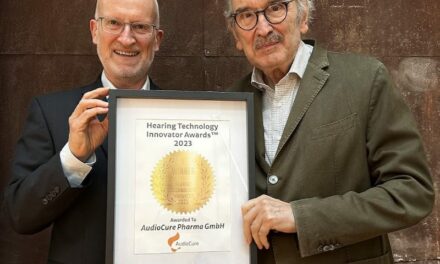 The HEARing Cooperative Research Centre (HEARing CRC) at the University of Melbourne in Australia has received a 5-year funding extension from the CRC Program to continue developing new devices, therapies, and service delivery models to improve the prevention, detection, and remediation of hearing disorders. For an example of a recent CRC collaborative project, see the news item in last week’s The Insider about the super-directional beamformer that CRC, University of Melbourne, and the National Acoustic Laboratories (NAL) developed.
The HEARing Cooperative Research Centre (HEARing CRC) at the University of Melbourne in Australia has received a 5-year funding extension from the CRC Program to continue developing new devices, therapies, and service delivery models to improve the prevention, detection, and remediation of hearing disorders. For an example of a recent CRC collaborative project, see the news item in last week’s The Insider about the super-directional beamformer that CRC, University of Melbourne, and the National Acoustic Laboratories (NAL) developed.
According to information from the organization, this funding (an additional AUD$28 million) will allow the HEARing CRC to continue its research into developing:
• New insights into the brain’s processing of sound enabling novel tools to target diagnosis and remediation;
• Next-generation hearing aids and cochlear implants with enhanced capabilities;
• Evidence-based guidelines for candidature, fitting, and rehabilitation that match technologies and services to individual patient needs, and
• Self-fitting and Web-based hearing healthcare delivery models that enable improved access for regional and remote communities.
Together, these innovations will increase the take-up and use of hearing technology and services, provide hearing healthcare targeted to needs, and encourage life-long hearing preservation, says HEARing CRC. It states that, by better addressing hearing disability, the lives of hundreds of thousands of Australians will be improved through enhanced education outcomes in children, increased productivity for adults, and reduced cognitive decline in the elderly.
The CRC Program supports medium to long-term collaborations between industries, research institutions, communities and governments.
Source: HEARing CRC




